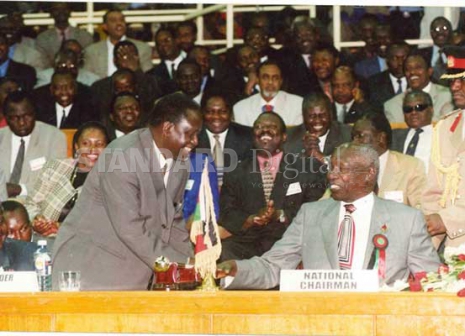×
The Standard e-Paper
Stay Informed, Even Offline

One day after the 1997 elections, retired President Daniel arap Moi invited Raila Odinga to his Kabarak home for talks.
The meeting came after Raila decided not to contest Kanu's victory, according to his biography, 'An Enigma in Kenyan Politics', authored by Nigerian Babafemi Badejo.